Requests for help preparing tax returns are down. From January 1st to March 30th requests to 211s for tax assistance are 12% lower than the same period in 2020.
Why are tax assistance requests lower in 2021?
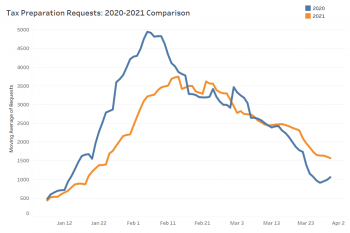

Requests for help preparing tax returns are down. From January 1st to March 30th requests to 211s for tax assistance are 12% lower than the same period in 2020.
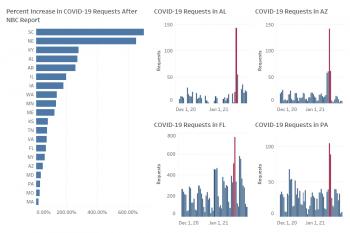
On January 13th, NBC Nightly News aired a story on how to get a COVID vaccine appointment. In the story, viewers were encouraged to call 211 for help. It worked.
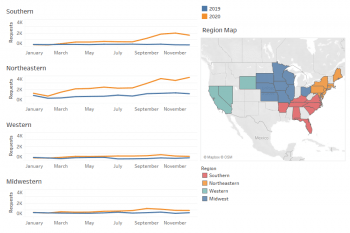
Landlord-tenant issues in the U.S. have grown most in the south and northeast during COVID-19. Requests about landlord-tenant issues were 180% higher in 2020 than 2019 in southern states.
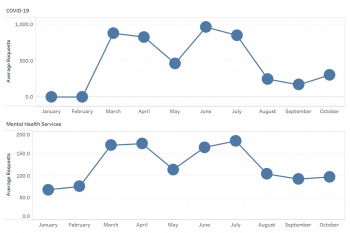
In Texas, requests for mental health services rise and fall with COVID-19’s impact. The charts below show nearly identical patterns in the average number of daily requests to 2-1-1s in Texas in 2020 for COVID-19 information and assistance (top chart) and mental health services (bottom chart).
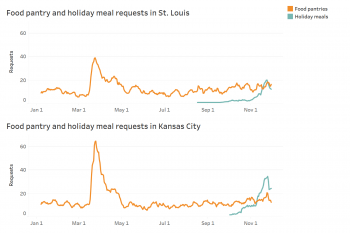
During COVID-19, food needs in the two biggest cities in Missouri have been strikingly similar. Until Thanksgiving, that is.

Among the many lessons learned about 2-1-1 requests during COVID-19, here’s one of the most important: availability of resources helps reveal community needs.
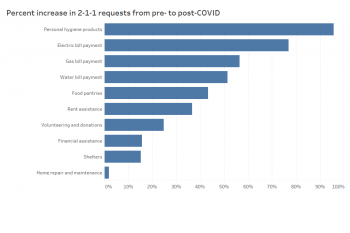
Calls for help in St. Louis just topped 100,000 for the year. The largest pre- to post-COVID-19 increases have been in requests for assistance with getting personal hygiene products such as diapers and toilet paper (+96%), electric bill payment (+77%), gas bill payment (+56%), water bill payment (+51%), food pantries (+43%) and rent assistance (+37%). The chart shows these and other needs that have grown during the pandemic.
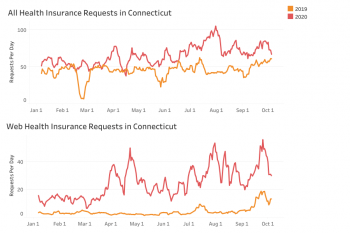
COVID-19 and a slate of creative new state health plans are driving big increases in requests for health insurance in Connecticut. Since the pandemic began, requests to Connecticut 2-1-1 for health insurance are up 48% compared to the same dates in 2019.
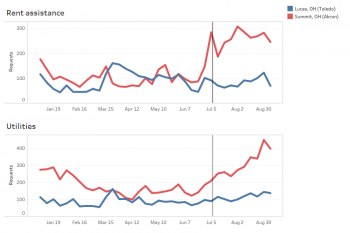
When Summit County, Ohio turned to 2-1-1 to help deliver COVID-19 relief, the demand was clear instantly. Summit County CARES, a program to help families affected by the economic fallout of the COVID-19 pandemic pay their rent and utility bills, launched on July 6th.